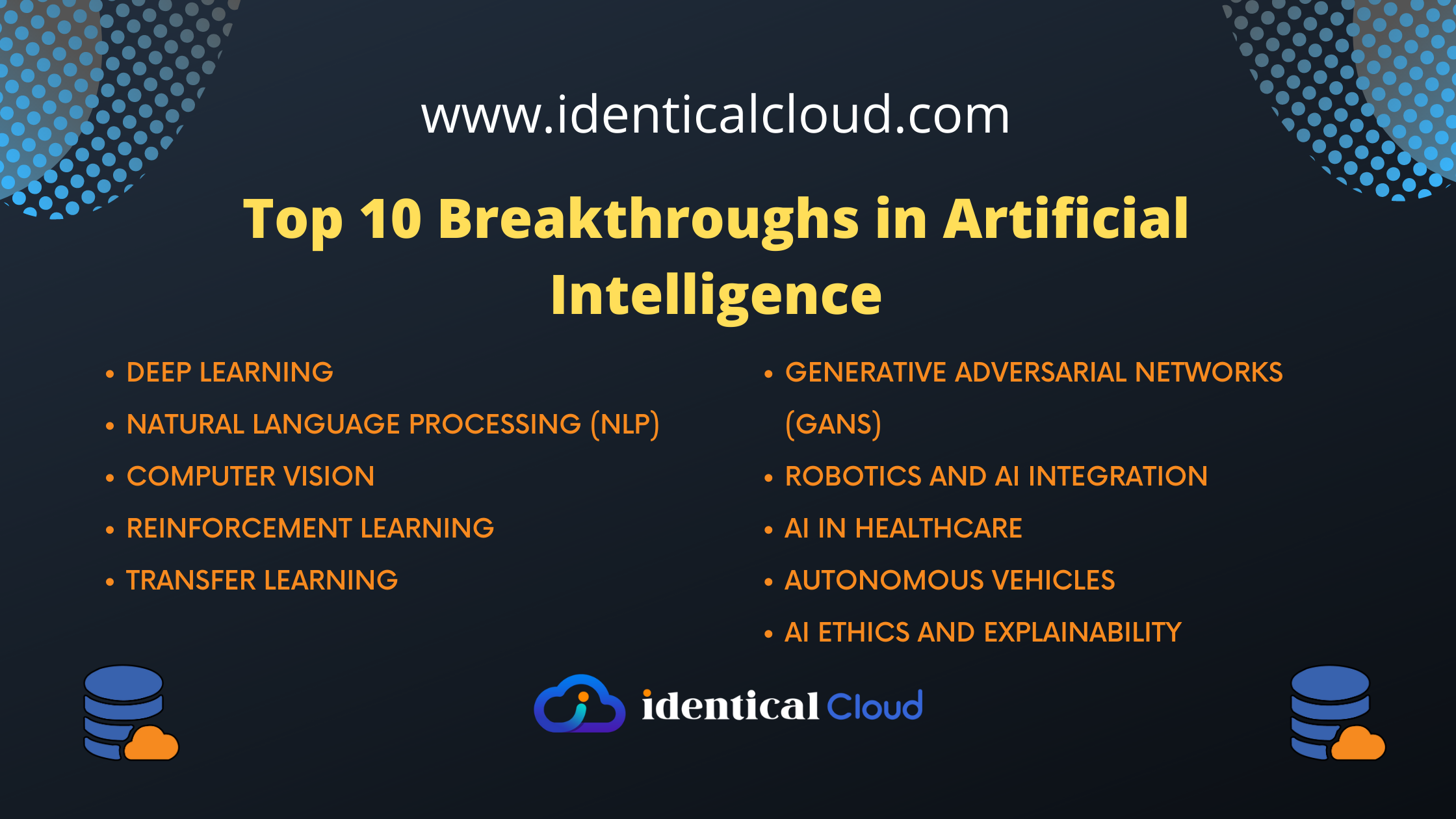
AI Breakthroughs: Unveiling the Power of Next-Generation AlgorithmsAI Breakthroughs: Unveiling the Power of Next-Generation Algorithms In the rapidly evolving field of artificial intelligence (AI), breakthroughs continue to push the boundaries of what is possible. Next-generation algorithms are emerging, unlocking unprecedented capabilities and transforming industries across the globe. Generative AI: Unleashing Creativity Generative AI algorithms, such as GPT-3 and DALL-E 2, have unleashed a new era of creativity. They can generate realistic text, images, and music from scratch, enabling artists, writers, and musicians to explore new frontiers. This technology is also revolutionizing customer service and content creation, as AI can automate tasks and generate personalized experiences. Quantum Computing: Exponential Possibilities Quantum computing introduces groundbreaking algorithms that harness the power of quantum mechanics. These algorithms can solve complex problems in a fraction of the time it takes traditional computers. Quantum AI has the potential to accelerate scientific discovery, optimize financial models, and revolutionize cryptography. Federated Learning: Data Privacy and Collaboration Federated learning algorithms allow multiple devices to collaborate on training AI models without sharing their data. This preserves data privacy while enabling the development of more accurate and robust models. Federated learning is transforming healthcare, finance, and manufacturing by facilitating data sharing across organizations without compromising sensitive information. Edge Computing: Real-Time Intelligence Edge computing algorithms enable AI processing directly on devices, such as smartphones and sensors. This reduces latency and allows for real-time decision-making. Edge AI is powering autonomous vehicles, smart cities, and industrial automation, where rapid response times are crucial. Automated Machine Learning: Democratizing AI Automated machine learning (AutoML) algorithms automate the process of developing and deploying AI models. This makes it easier for non-technical users to leverage AI’s power. AutoML is reducing barriers to entry for businesses of all sizes, enabling them to gain insights from their data and innovate with AI. Societal Impact of Next-Generation Algorithms The breakthroughs in next-generation algorithms have profound societal implications. They have the potential to: * Enhance human capabilities and free up time for creative endeavors * Improve decision-making and reduce biases * Drive economic growth and create new industries * Address global challenges, such as climate change and public health However, it is essential to approach these advancements with a thoughtful and responsible approach. Ethical considerations, such as data privacy, bias reduction, and job displacement, must be carefully addressed to ensure that AI benefits all of society. Conclusion The unveiling of next-generation algorithms is a testament to the relentless pace of innovation in the field of AI. These groundbreaking technologies are transforming industries, unleashing creativity, and expanding the possibilities of what AI can achieve. As we embrace the full potential of these algorithms, it is crucial to navigate their societal implications with wisdom and foresight to ensure that they serve humanity in a positive and equitable way.
Posted inNews